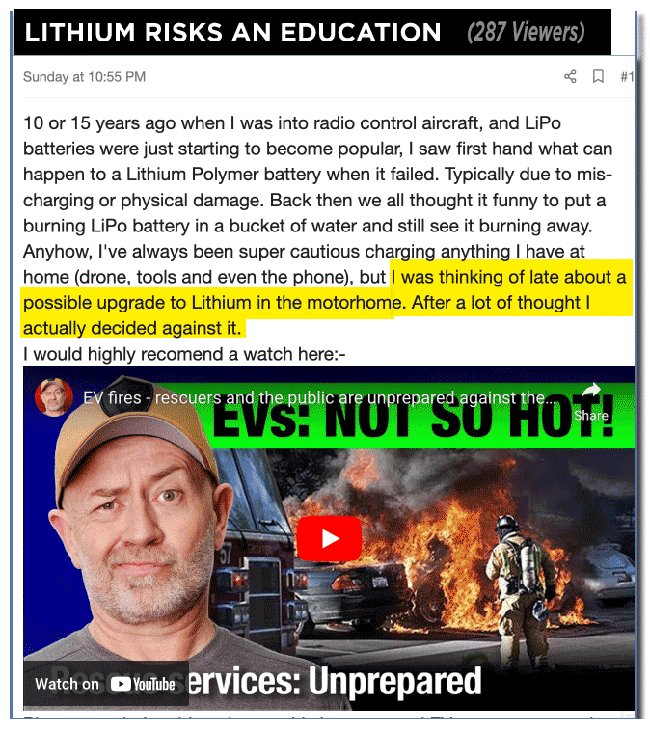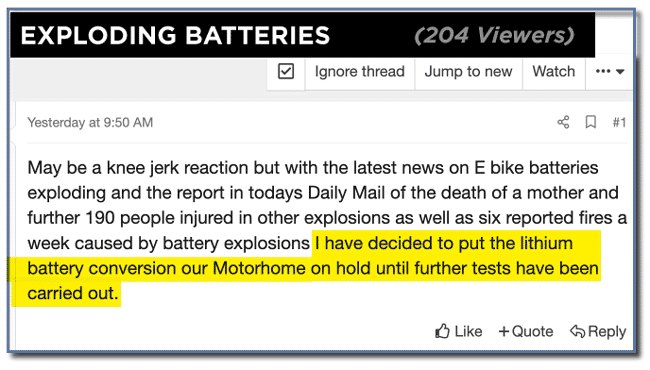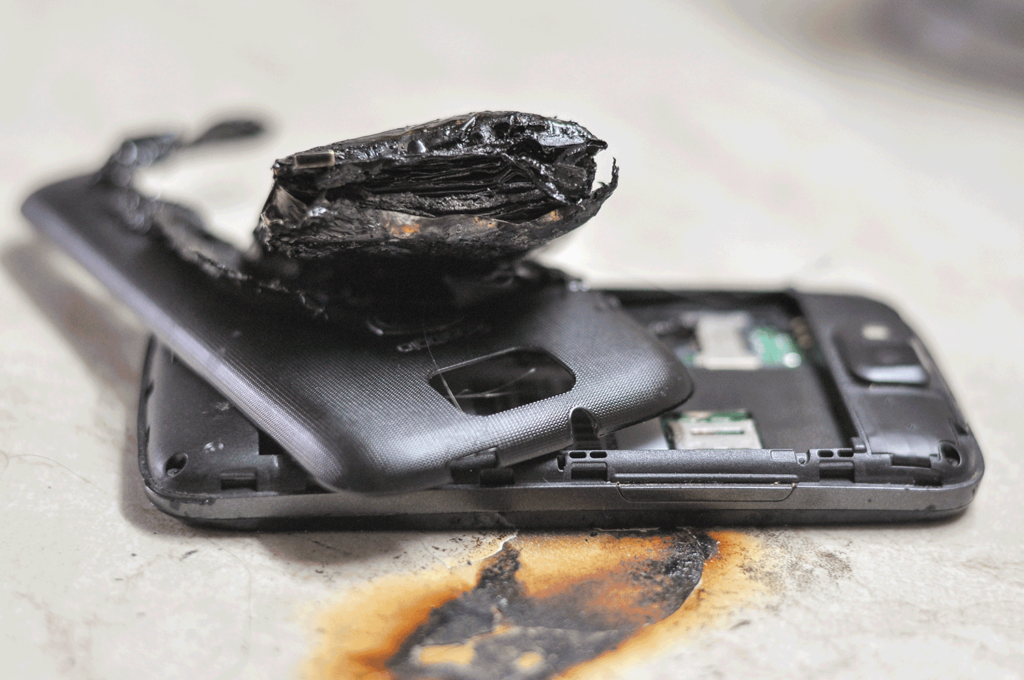With motorhome batteries, the buzz is all about lithium. These batteries have gained popularity as they are proving to be vastly superior alternative to lead-acid batteries.
Motorhome lithium batteries utilise the latest lithium-ion technology called lithium iron phosphate (LiFePO4). And the reasons behind their popularity are plenty.
Firstly, these batteries have a significantly longer lifespan compared to lead-acid batteries. Plus, they are lighter and charge faster, making them the ultimate choice for motorhomers who frequently go off the grid or rely on solar power.
However, there are a few misconceptions floating around about lithium motorhome batteries, look at these two posts on the forum. Both these people had seen a lithium battery scare story and decided against fitting lithiums to their motorhomes. They were both misguided.


Let’s debunk the four most common myths in this article, so you can make an informed decision.
3½ LITHIUM MOTORHOME BATTERY MYTHS
LITHIUM BATTERIES MIGHT CATCH FIRE
Today’s lithium batteries utilise non-flammable lithium iron phosphate (LiFePO4) technology. These batteries are safer than the lithium batteries used in phones, laptops, and e-bikes. Even when damaged or caught in a fire, the LiFePO4 battery will not make things worse. LiFePO4 batteries won’t fiercely burn or blow up. In this regard they are deemed to be safer than the lead acid batteries you are used to.

LITHIUM BATTERIES ARE USELESS IN COLD WEATHER
We can use lithium motorhome batteries in cold weather! Many brands even allow power to draw right down to -20c.
Taking power when it’s this cold is easy. It’s charging the battery below freezing where you might have a problem and it’s for this reason that the myth persists, but read on.
It’s true charging below freezing can damage the battery by causing the formation of crystals that destroy the battery cells. You need to avoid this at all costs.
If you install your battery inside your motorhome, it is easy to keep it above freezing. However, even if it is in an outside locker, you can still prevent it from getting too cold to prevent charging.
The BMS in lithium motorhome batteries monitors temperature and avoids dangerous charging..
So you could find yourself when you have a flat battery and it being too cold to charge it. Luckily, there are motorhome lithium batteries with built-in heating elements on the market. The BMS will activate the heating element when the internal temperature is too low, enabling charging even in freezing conditions.
So Lithium motorhome batteries certainly are not useless in cold weather.
LITHIUM BATTERIES ARE MORE EXPENSIVE
Yes, it’s true that lithium batteries come at a higher initial cost. But here’s the thing – they will actually save you money in the long run. Why? Because they last so much longer than traditional lead-acid batteries.
And that’s not all. Lithium batteries have another advantage: we can drain them much lower than lead-acid batteries. This means you can get away with using half as many of them in your motorhome setup.
Actually, it makes no sense to compare them with traditional batteries, because we are not comparing like for like.
Lithiums enjoy
- More useable power from a single charge
- Much lighter, so saving on payload
- Faster to charge
- Fit and Forget, no electrolyte to check
- Battery life up to 10 times longer
So while they are more expensive. You get a lot more for your money.
STRAIGHT SWOPS ARE OK (HALF A MYTH)
Can I just switch my old battery with a new Lithium? This is a question that is asked a lot on the forums. Chances are,
if your knowledge about these batteries is limited enough to have to ask that question, then the answer is probably NO! GET A PROFESSIONAL OPINION.
You’ll need to get someone to check your setup first. Some people have a system that enables them to just swap them out, many do not.
There are a few things to consider, such as the charger, whether it and the cabling from it, is up to the job.
Some vans may require a B2B or DC-DC charger to help protect your alternator and effectively manage the effective charging of your battery.
If you are not 100% sure you know what you are doing then get some advice before you swap
So there you have them, 3½ big myths/ I hope you understand a little more than you did before you started reading. Go and treat your van to some Lithium.
Reccomended reading



